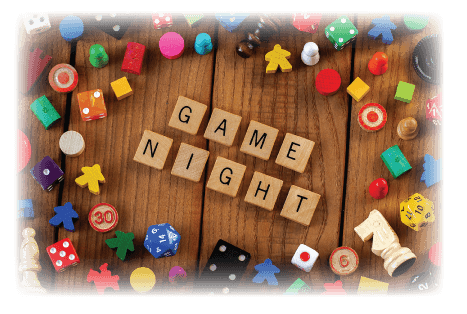The Emerald Education Blog

6 Educational Benefits of Family Game Night
ARTICLE BY DAWNE COKER

Family game night isn’t just about having fun. It’s also a great way for children to learn math! Whether it’s a logic puzzle, cards, or a board game, a family game night has many educational benefits. Let’s take a look at 6 ways playing games as a family helps children in learning math!
1. Enhance problem-solving skills.
Games often call for players to make decisions, solve problems, and use strategy. These behaviors build critical thinking and problem-solving skills. For example, checkers and chess help children predict their opponent’s moves. They learn to plan many steps ahead. This strategic thinking ties to math, where problem-solving is key.
Games like Chutes and Ladders or Monopoly involve counting spaces or money
2. Improve number recognition and counting.
Games like Chutes and Ladders or Monopoly involve counting spaces or money. This helps children recognize numbers and practice counting within real-world contexts. Using numbers in play builds fluency with early number skills.
3. Develop logical thinking.
Games often have rules and patterns players need to discover. In games like Sudoku or Clue, children use deductive reasoning to solve problems. This logical thinking is closely connected to math because children must recognize patterns, analyze information, and draw conclusions.
4. Encourage mathematical conversations.
Playing games as a family offers a natural setting for mathematical discussions. Adults can ask questions like, “How many spaces do you need to move to reach the finish line in a game of Sorry?” When playing a game like Hi Ho! Cherry-O, ask, “If you have three cherries and get two more, how many will you have?” These conversations show math as a practical part of everyday life.
5. Introduce probability.
Games like Yahtzee or Uno introduce basic concepts of probability, which serves as a foundation for statistical reasoning. Children begin to notice the likelihood of outcomes and make decisions based on these probabilities. Understanding probability helps in many areas of math and science.

6. Promote positive attitudes toward math.
By using math during gameplay, children gain a positive attitude toward mathematics. They start to see math not only as a school subject but as a part of everyday activities. This positive mindset can lead to greater interest and success in mathematics.
Remember, family game night is more than just fun—you’re helping your children develop important math skills. So, explore a logic puzzle, shuffle some cards, or get ready for a board game and prepare for some math-filled fun!
